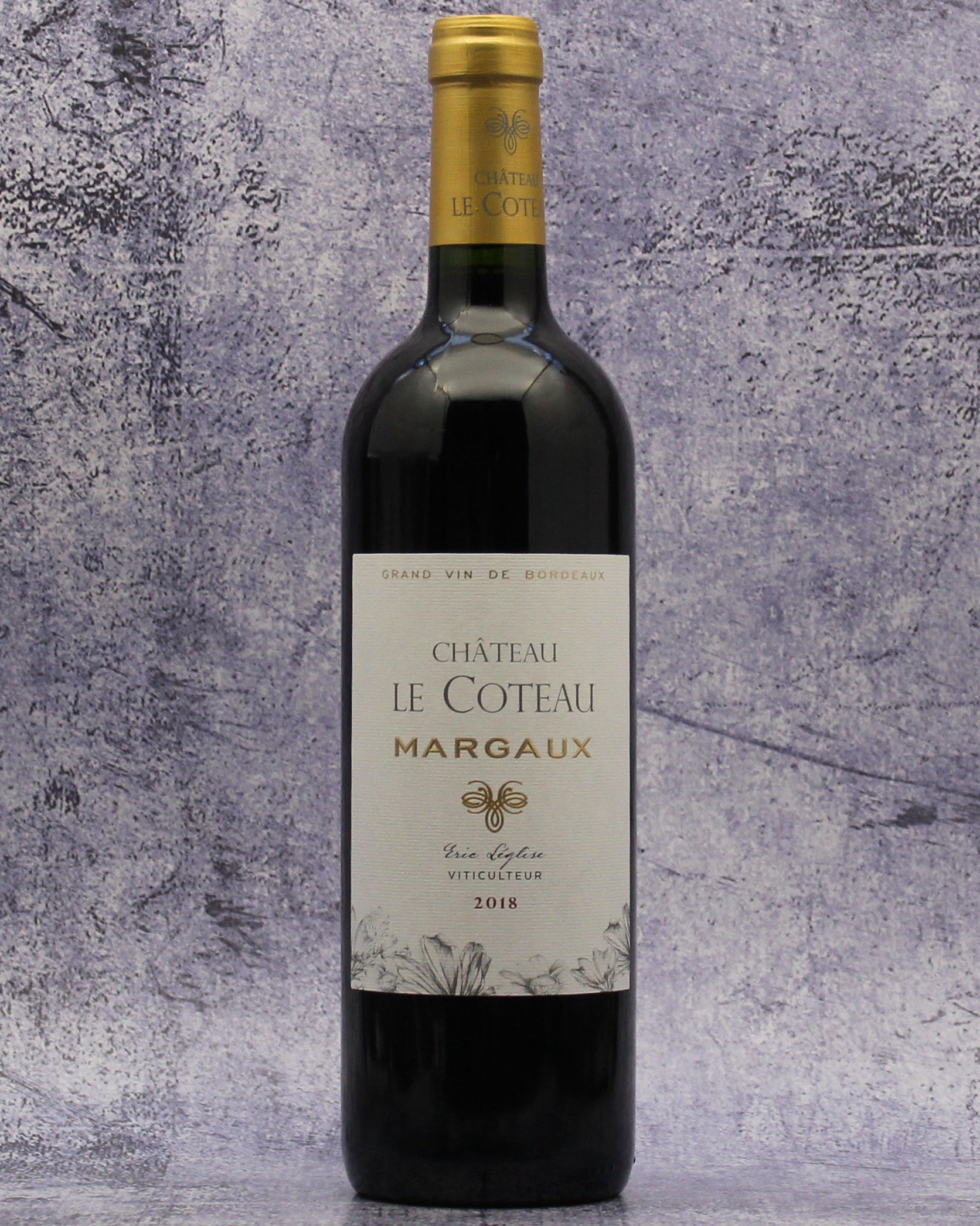From: Margaux, Medoc, Bordeaux, France
Varietal: Cabernet Sauvignon, Merlot, Petit Verdot
Taste & Critical Acclaim: It is distinguished by its deep purple hue with violet reflections. The nose presents an elegant bouquet of dark berries, notably blackberry and plum, complemented by floral notes of violet and subtle hints of spice and chocolate. The wine is well-balanced on the palate, offering freshness, ripe tannins, and a juicy fruit core, culminating in a convincing length.
"Blackcurrants, blackberries, dried flowers, graphite and cedar on the nose. Medium to full body with firm, tight tannins and fresh acidity. Quite austere and tight. Better from 2024.” 92 Points, James Suckling
"The 2018 Château Le Coteau is a classic, elegant Margaux with a ruby hue as well as beautiful notes of redcurrants, black cherries, sappy herbs, spring flowers, and cedar. Nicely balanced, with good acidity and a great finish, it's well worth seeking out and will keep for 10-15 years.” 91 Points, Jeb Dunnuck
Pairing: This wine pairs beautifully with dishes that match its moderate weight, such as roasted or grilled meats and vegetables. Its acidity and tannins work particularly well with rich or fatty textures, balancing the palate and enhancing the meal. Avoid overly spicy dishes, as they can clash with the wine’s complexity, and consider incorporating herbs like thyme, rosemary, or bay leaf to mirror its earthy and floral notes.
Eggplant and Squash Alla Parmigiana
Recipe from Lincoln Ristorante
Adapted by Florence Fabricant, NYT Cooking
About: The history of Château Le Coteau dates back several centuries in the Margaux region. Margaux has been synonymous with viticulture since Roman times, with its gravel-rich soils recognized as ideal for cultivating vines. The estate's name, "Le Coteau," alludes to the gently sloping hills that characterize its vineyards. These picturesque slopes are vital in enhancing grape quality by providing optimal sunlight exposure and natural drainage. Over the centuries, the estate’s vineyards have been meticulously cultivated to produce wines that embody the region's unique terroir.
The estate’s early years were closely tied to Bordeaux's rise as a global wine powerhouse. By the 18th century, Margaux had established itself as one of the most sought-after appellations in the region, and properties like Château Le Coteau contributed to this burgeoning reputation. The phylloxera epidemic of the late 19th century devasted Bordeaux’s vineyards, including those of Château Le Coteau. However, the estate recovered and eventually had its renaissance in the 20th century.

